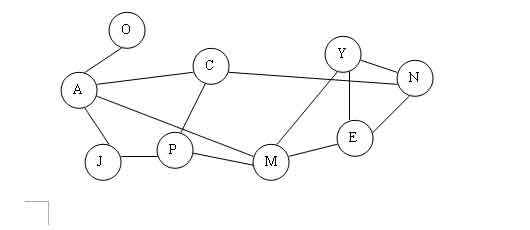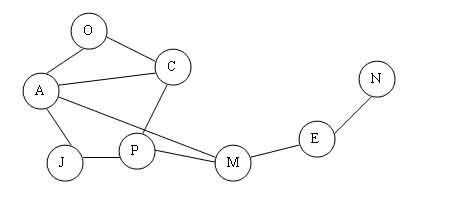Social Games and Strategies for Winning
We have learnt much about Network Exchange Theory in class and it’s significance in determining the actual and perceived balance of powers within a network by virtue of the node positions. Network Exchange Theory clearly elucidates that a situation of an individual spanning structural holes and having more opportunities for interaction (satiation) confers upon him more power within the network to achieve better payoffs and the likes.
Survivor takes a twist of the common divide-a-dollar social experiment and instead forces people within networks to eliminate nodes systematically till there are 2 final nodes (the final contestants). There are actually many implications of Network Exchange Theory as well as strength of weak ties that educate a contestant on their most effective strategy in a particular situation that would help them improve their probability of reaching the Final 2.
Kevin Drum lightly mentions this idea in his article and goes on to suggest that being in a position of gatekeeper within a network is much more powerful than one of being in a central position of a close network. In substantiating his argument, Kevin comments that Rob Cesternino played this game where “He was always at pains to keep his options open; he maintained friendly relations with as large a group as possible (and was rather good at convincing others that he had their best interests at heart, even when he didn’t). He then chopped and changed his strategy as circumstances demanded. When he needed to zig, he zigged, and when he needed to zag, he zagged. He didn’t seek to lead alliances, but instead made himself into the pivotal player, who could move from one alliance to the next, and thus swing the vote in one direction or another. By so doing, he shaped the strategic context which everyone else had to play in.”
See: Article
Indeed, a general strategy of being the gatekeeper is effective because being the gatekeeper confers options to control information that flows from both networks, and also gives one the flexibility to switch strategies and perhaps even change sides when necessary in order to maintain one’s power.
Let us examine how a position of a gatekeeper can actually be beneficial in the game. Consider the following network within a tribe.
Assume you are Player M. The tribe is split into two alliances of Y-M-E-N and O-A-J-P, with C currently being an intermediary that both alliances are attempting to woo to achieve a majority. In terms of Social Network Theory jargon, A and E represent central nodes within their respective alliances whereas C, and to a certain extent M, represent semi-gatekeepers.
What can M do at this juncture?
Knowing the idea of the power of the gatekeeper, M should realize that the power is largely diluted with having two pseudo-gatekeepers spanning the two alliances. To consolidate her power, M’s best option would actually be to remove the other offending ‘threatening’ gatekeeper and increase her power in the network.
Let’s assume things do not go as M plans and C sides with O-A-J-P, evicting Y. Now the graph looks like this: (We assume betrayal leads to severing of ties as well.)
Now an interesting scenario occurs. M-E-N are in a distinctly disadvantaged situation and A becomes the power player within the network.
What can M do?
M still has certain power owing to her virtue of being a gatekeeper to E and N, and having flexible access into the main alliance through both P and A. M’s best strategy would actually be to go for jugular and evict A by courting for the vote of P (in a sense offering a better offer to P, arguing to P that evicting A, the perceived power player confers power onto P).
Of course, the fun and frustration of such flexible social games such as Survivor is that there are so many parameters and other factors to play with. However, entering the game with a clear idea of Networks Theory and the power in networks surely is an advantage. Hence, an advice for future successful survivor applications: bring your ECON 204 textbook as you luxury item.




* You can follow any responses to this entry through the RSS 2.0 feed.